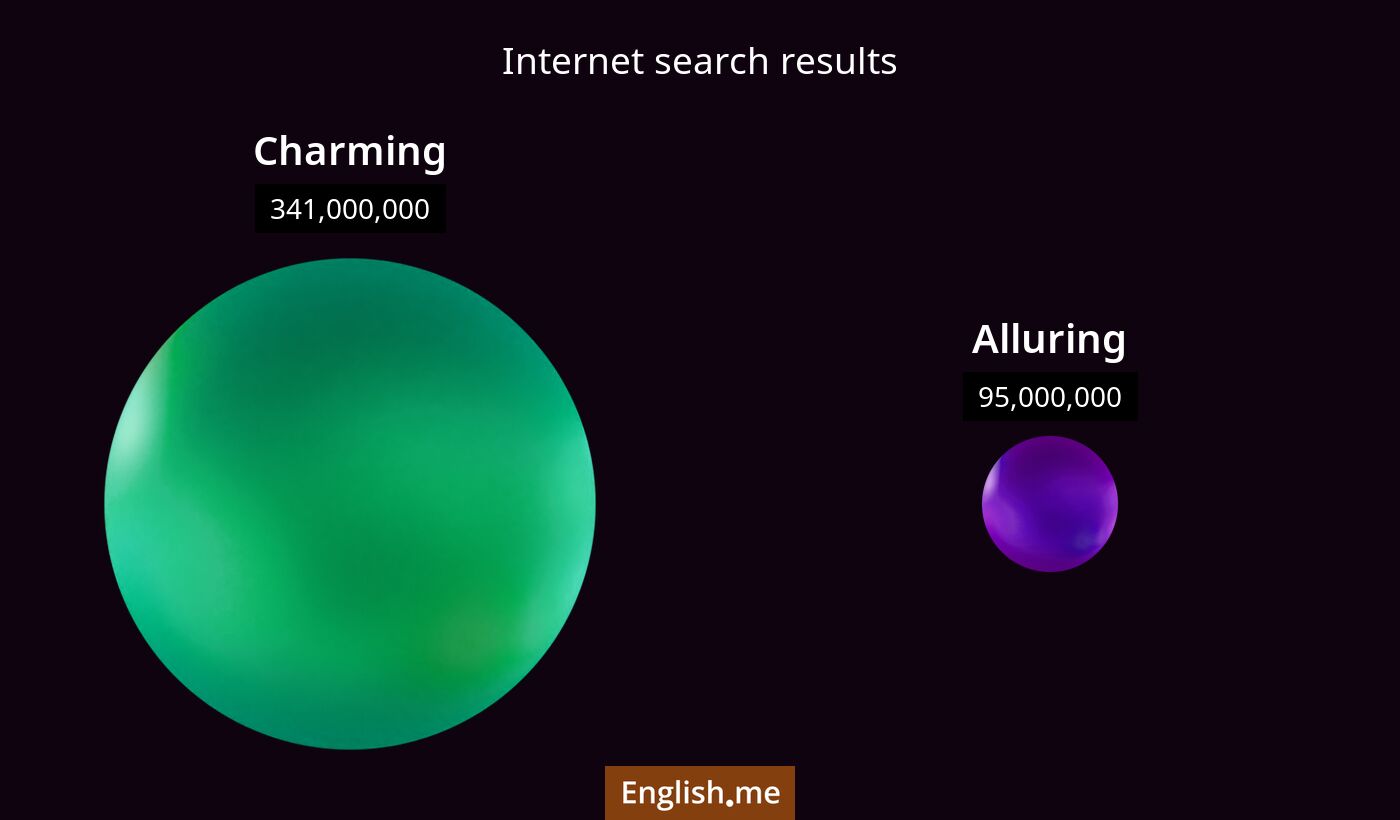"Charming" vs. "alluring": a captivating comparison
Reviewed and edited by  Anwar Kareem 07/11/2024, 08:49
Anwar Kareem 07/11/2024, 08:49
English.me team member

 What is similar?
What is similar?
Both "charming" and "alluring" describe qualities that attract or captivate someone. They can be used for people, objects, or experiences that have a pleasing or enticing quality.
 What is different?
What is different?
"Charming" often implies a sense of delight, pleasantness, or appeal, sometimes with a connotation of innocence or sincerity. "Alluring," on the other hand, tends to suggest a more seductive, mysterious, or irresistible attraction.
 Which one is more common?
Which one is more common?

 Examples of usage
Examples of usage
Charming- The little village was charming, with its cobblestone streets and friendly locals.
- He has a charming smile that lights up the room.
- The book is filled with charming anecdotes of her childhood.
- The scent of the flowers was so alluring that I couldn't resist going into the garden.
- Her alluring gaze held an air of mystery.
- The idea of traveling to an exotic island is quite alluring.

 English
English español
español française
française italiano
italiano deutsche
deutsche 日本語
日本語 polski
polski česky
česky svenska
svenska Türkçe
Türkçe Nederlands
Nederlands